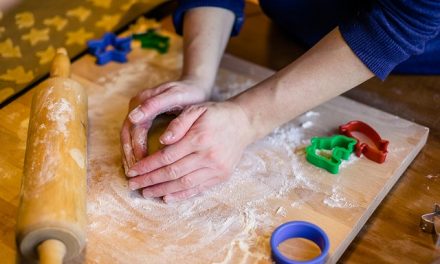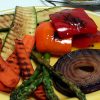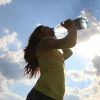When soy foods were first tied to a lower risk of cancer, consumer publications made the link seem certain. Later when isoflavones � a compound presumed to be the key ingredient in soy � were added to foods and supplements, we heard in the news that soy might not offer as much protection as hoped. Now many people are unsure what soy can do against cancer.
Breast cancer has been a primary focus of the research on the link between soy and cancer. Asian women have only a third to one-half the breast cancer risk of American women, and their regular use of soy may be part of the reason. Soy contains several natural phytochemicals that act as antioxidants and possess structural similarities to estrogen. These substances can bind to estrogen receptors in many tissues, including the breast, uterus, bones and blood vessels. In some tissues, recent research shows that soy's isoflavones may block the effects of estrogen, thus reducing cancer risk.
But a recent review of 18 different studies concludes that soy has no effect on breast cancer risk, except possibly when consumed during adolescence or eaten in extremely high amounts. A report in the American Journal of Clinical Nutrition suggests that early exposure to soyfoods and the isoflavones they contain promotes the development of breast cells into a form more resistant to cancer-causing influences. This early exposure may provide some degree of protection even years later. Several other reports agree that soy foods may not protect against breast cancer when consumed in adulthood.
Prostate cancer has also been identified as potentially influenced by soy foods. In cell culture studies several soy phytochemicals inhibit prostate cancer cell growth. Most animal studies also show soy compounds protect against cancer in general. Unfortunately, limited information is available about the effects in humans.
Although its effectiveness at reducing breast cancer risk is in considerable doubt, soy remains a reasonable way to lower overall cancer risk. Isoflavones from soy have been shown to block cancer development in animals. In cell culture studies, these substances can inhibit the growth of human cancer cells, blocking the processes by which cancer spreads. As a healthful alternative to meat, soy foods can be part of a plant-based diet that helps prevent cancer.
In addition, soy foods seem to help lower heart disease risk factors. The heart health benefit appears to come from soy foods themselves, not isoflavone supplements. Perhaps, other components of soy have more impact on cancer risk than isoflavones, which have received so much attention.
Until we have more data on the long-term safety of soy, experts suggest that almost all women can eat up to two or three servings of soy foods a day as part of a balanced, mostly plant-based diet. The effect of soy foods on women taking the drug tamoxifen, however, is still unclear. These women should discuss with their physician how much soy, if any, is appropriate for them. Furthermore, until we have more data on the long-term safety of large amounts of isoflavones, consuming products or supplements enriched with more than 100 mg of isoflavones is unwise.
AICR











